Comments (28)
tapla (mid-Michigan, USDA z5b-6a)
13 years agolast modified: 9 years agoWhich asparagus fern?
The usual suspects at this time of year that cause spoiled foliage are usually all related to drought response. Over-watering and/or a high level of soluble salts in the soil share prime suspect status. Under-watering is also a possibility. Any/all of those possibilities can be exacerbated by low humidity in the home.
It would take a bit of discussion to determine a suitable course to deal with the problem and keep it from getting worse, but the best approach is prophylactic - adopting habits that prevent these issues from occurring in the first place.
Related Professionals
La Marque Landscape Architects & Landscape Designers · New Mexico Landscape Architects & Landscape Designers · Norton Shores Landscape Architects & Landscape Designers · Brooklyn Center Landscape Architects & Landscape Designers · Finneytown Landscape Architects & Landscape Designers · Brookside Landscape Contractors · Bethel Park Landscape Contractors · Cockeysville Landscape Contractors · Davidson Landscape Contractors · East Patchogue Landscape Contractors · Ellicott City Landscape Contractors · Siloam Springs Landscape Contractors · West Palm Beach Landscape Contractors · Mansfield Interior Designers & Decorators · Fairfax Handymanbirdsnblooms
13 years agolast modified: 9 years agoD Pierce. Asparagus Ferns have a few needs. Aside from bright light and proper watering, 'moderately moist,' it's mandatory they're kept cool, far away from a heating source.
Do you know which AF you have? A. Sprengeri, Plumosis, Ming??
Not that type differs when it comes to heat, none like hot, stuffy rooms.They're fast growers, especially in summer. Speaking of summer, if you have access to a garden or patio, as soon as temps are in the 60's, set it outdoors. Start off in shade, work up to a brighter location.
For the time being, shake your AF to loosen brown fronds. Hose/shower once a wk, and if possible, spray/mist daily.
Soil shouldn't be kept muddy, but don't let it dry too much, either.
Place in a bright, cool, semi-humid spot, that has some air-circulation or fresh air. Before you know it, your AF will acclimate, start sending out new, lushm, green growth.AF's are beauiful plants. In autumn, green berries that turn red and white flowers form.
Mine are grown is semi-acidic, well-draining soil. pH around 6-6.5. Good luck, Toni
jodik_gw
13 years agolast modified: 9 years agoSpider mites are a possible suspect this time of year... and a dry indoor environment is one they love the best. Look for very fine webbing toward the frond tips.
Low humidity/very dry air is another culprit, as tapla states.
jojosplants
13 years agolast modified: 9 years agoHi Toni,
I was wondering how you keep your soils pH at 6-6.5. I was under the impression it's really hard to do in a container. I just got a fern not to long ago, and with the holidays I haven't had much chance to look into it's care.Also,
Do you measure the humidity in the room? I've read plenty here that misting is just a waste of time and that pebble trays with a fan work better.I tried misting for awhile, and the room never measured any difference.
Thanks,
JoJobirdsnblooms
13 years agolast modified: 9 years agoHello JoJo,
I mix soils according to plant type. Those that require acidic soil, 'ferns, Azalea, Gardenias, etc,' are prepared with various types of packaged soil, Peat, bark chips, and Vinager.
Over the years I purchased different types of guages. A couple display pH. When soil is tested, two guages are inserted to compare accuracy.
What type of fern did you get?
Humidity: I have 3 hygrometers, plus one attatched to a light switch. Like pH guages, when I want to check air humidity, I place two hygrometers next to each other.
Misting. Jojo, I've had better luck misting plants than not. A couple examples. In 2006, there were personal problems at home. I went into a deep depression, and stopped spraying plants. Other than watering, plants didn't get their daily spray or weekly shower.
What a difference! It was very noticable. This went on from Nov to Apr. After things settled down, I cleaned plants, and started sprayinig again. Oh, btw, my plants are usually insect free. I found mites on several plants. Anyway, after I got to spraying, plants perked up, leaves once again were clean and shiny, 'I don't believe in leaf shine.'
Another happening is, as I stated above, my plants, for the most part, are insect-free. 'I mix a home-made insectide.'
Anyway, w/Christmas and all, I've neglected spraying plants in the back plant room. Plants in front and other rooms were sprayed daily. Wouldn't you know it, the other day, while cleaning, I found, of ALL insects, Mealy Bugs. Since I don't believe in using chemicals, I'm treating them organically. I pray it works.My misters aren't those cute, little, ornamental, 1-cup sprayers. They're 16ox sprayers and 1-gallon pump types. One pump type cost 30.00. After plants are sprayed, adequately, humidity increases. I will admit, keeping 2 humidifers and in indoor fountain maintains air moisture, additional water/spray keeps leaves semi-moist. Some plants, especially Calatheas drip dew several hours after spraying.
Yep, pebble trays increases humidity, too. My Calatheas/Marantas/Stromanths sit on top of stones w/a little water in the tray.
Spraying keeps leaves clean. Dust-particles clog pores..Foliage needs to breath, dust accumulation makes it difficult.
Grouping plants helps with increase humidity, too.One other thing. I stated above I make make a home-made insecticide. One of the ingredients is Lemon. I'm not 100% certain, spraying lemon on leaves lower pH, (assumption) but it keeps mites away.
Good luck with your fern. Toni
tapla (mid-Michigan, USDA z5b-6a)
13 years agolast modified: 9 years agoSo just exactly how do you maintain your soil at a particular pH?
Al
birdsnblooms
13 years agolast modified: 9 years agoJojo..I mix vinegar in a gallon 'cleaned/milk container' of water, never directly in soil.
Misting would never keep humidity at 100%, but it helps.
What do you do to maintain humidity? Do you keep plants inside your home, green house, or outdoors? Since you're in AZ, the air must be terribly dry? No?
Toni
jojosplants
13 years agolast modified: 9 years agoHI Toni,
O.K...
So you really aren't maintaining the SOIL PH, you're adjusting the PH of the water that you irrigate with. The same way Al describes you should do it if your worried about PH.I also thought the plants that preferred acidic conditions liked much lower PH in containers than 6-6.5. Like around a whole # lower than if they were in the ground.
6-6.5 seems high for containerized acid lovers .
What about rain water? Will it need the vinegar added? I'm thinking I read somewhere it doesn't.
All my notes got moved to do some Christmas baking. lol..As far as humidity for my plants, just a few pebble trays at the moment. The room they are in is being remodeled.
This is also my first season really having plants indoors other than succulents and cactus.I'm not much for misting, I feel it doesn't work, and our hard water leaves the plants looking horrible with white marks! That's why I was curious about your results.
I give everyone a good bath once in awhile, and wipe them down and dust.
I just hooked up a dryer last night, it will vent indoors and add alot of humidity to the house. We'll see how that goes, and if not, I'll take other measures.
Oh, not positive of the type of fern I have would have to check with the person who sent it.
JoJo
jojosplants
13 years agolast modified: 9 years agooh, and yes, our air is very dry! :-) In the summer it is known as a dry heat here, but I have a swamp cooler, so they are good in the summer on humidity.
JoJo
birdsnblooms
13 years agolast modified: 9 years agoHowdy Jojo. What's the temp in AZ, 'your area' this time of year? Maybe I misread your response, do you mean AZ is more humid in winter than summer?? If so, what's the reason? And if so, how much of a difference?
About pH..although I 'sometimes,' ck pH, my main concern is with a Gardenia purchased in 1994/5, for more $ than I'd ever spend on a plant..lol.
Gardenias are very difficult overwintering indoors. Other plants that get 'guaged, are Citrus trees, and two older ferns.Ferns are fussy. 'indoors.' Can you post a pic?
A few years ago I bought a fern at HD. No ID. Its leaves are very thick. Wish I knew its requirements..for some reason it reminds me of a 'desert fern,' a made-up term. lol.
Outdoor, hardy ferns are amazing..We get enough humidity in summer, but I spray, with hose not a mister, lol, daily, which perks up their beautiful fronds.
I feel, if hosing works for outdoor plants, the same applies to indoor plants that need humidity.'Hard water is a problem. Do you water your plants from the tap or buy bottled water? A friend here in IL has hard water. Her plants were doing poorly..she decided to try bottled water, and voila it made a huge difference. Her plants are now lovely.
Thank God, our water is neither hard nor soft, it's just right, like the 3 Bears' porridge. lol.
Have you considered buying a water softener device? They're sold at Home Depot.
Would keeping your tap water in in containers, more than 24 hours, help?
I clean and save milk containers, then fill with water. When a plant needs a drink, it's watered from the containers.
Years ago, after the first 3 plants I was given as gifts died, I purchased plant books. Several authors suggested using water that's been sitting out, at the minumum, 24 hours. One reason stated,' it's been discovered fluorides/chlorines present in tap turn foliage tips brown. This is especially true with Spider Plants/Chlorophtums.How much rain does AZ get? I doubt much..but when it rains, collect as much as possible. If your plants are kept outdoors, year round, Mother Nature/God will water your plants with natural water. :)
6-6.5 is closing in on neutral, but it's been a while since my plants were repotted or fresh soil/mediums were added. Last year I had knee surgery..I regret to say, even though I managed hauling plants outdoors, (before surgery) none were fertilized or Superthrived. Not a one. Since my plants aren't fertilized in winter, as soon as days grow longer, every last plant is going to get a dose. Plus ST, and other ingredients. I usually apply liquid iron to certain plants, 2-3 times per year..none got a drop. Since winter, except for the back room, plants get daily misting.
Jojo, if you feel misting doesn't help, not to mention leaves a residue, don't spray. There are other methods to raise humidity..a humidfer can't be beat.
We make suggestions, but people should care for their plants as they see fit...and of course, the plants well-being.
One example is sun. Say a plant needs medium light. How many times do ppl come here asking which direction/window their plant should be placed. It differs by location. Here in the midwest, a low light plant would thrive in a south or west window opposed to one who lived where winters are hot and sunny. An example is Fittonia. Fittonia prefers shade to medium light. If I placed a Fitt in a south or west window during winter, it'd do great, however, if a Fittonia was placed in s/w exposure where sun is strong, the poor plant would wilt.So, to each his/her own. Know what I mean?
What type of dryer did you install? What is it? lol.
sorry this thread grew...Toni
tapla (mid-Michigan, USDA z5b-6a)
13 years agolast modified: 9 years agoJJ - did any of your questions get answered?
I'm curious too - about just how Toni maintains a particular soil pH - how she tests, and what procedure she follows to adjust the pH.
FWIW - fluoride isn't volatile, and the form of chlorination used now by most municipalities doesn't dissipate. Technically, leaving a bucket of water set overnight or longer actually slightly concentrates ALL the solubles in irrigation water. To envision this, think of a tablespoon of salt dissolved in a quart of water - boil (rapid evaporation) off a pint of water and the salt is twice as concentrated in the remaining pint. The same thing happens as water evaporates from the bucket left out over night. If the water was in something like a milk jug, there wouldn't be enough water surface exposed to air to make a difference anyway. There is some value in allowing the water to come to room temperature, though.
I have some comments on hard water, too, but I'll wait to hear how Toni deals with her pH problems.
Al
jojosplants
13 years agolast modified: 9 years agoHI Al~
Sort of., I do have more questions though.Hi Toni~
Thanks for your help and replies. I am still unclear on some things.First,
One of your questions. Arizona, Tucson where I am is a very mild winter and hot dry summer. Durring July-Sept, we have monsoons, which are humid but nothing compared to the rest of the country. So it's referred to a dry heat. Our swamp cooler will add humidity to a house rather than take it out like AC.Right now are temps are in the 60's durrning the day, lows of 38-40 and little to no rain. We've had a few showers since Oct. due some tomorrow. So I guess you could say we are a little more humid in the summer.
I really don't know the difference in humidity between the seasons as far as a percentage goes.The dryer I put in is a elec. clothes dryer. It vents into a water box. So adds humidity to the house till summer when I change and vent it outside. :)
up thread you mentioned this...
""I mix soils according to plant type. Those that require acidic soil, 'ferns, Azalea, Gardenias, etc,' are prepared with various types of packaged soil, Peat, bark chips, and Vinager""And your recent post you say that you "sometimes" check PH.
So how do you know if you mixed your potting mix correct?
How do you measure it.? and keep the PH where it belongs?Right now all I have to worry about is a fern, and a lemon tree.
I will be using along the lines of Al's 5-1-1 , peat, bark, pearlite.SP? tired and drawing a blank on spelling.. LOL!
So how would I know if it's mixed right for the PH?
I'm hoping to put the fern out in the garden in the spring in the ground.
I water all my plants from tap when I don't have rain water. Which will be soon. :) I have a 50gal. collection barrel and I put it in jugs for storage/use later. But I'm about out of rain. And tomorrow doesn't look to promising. lol..
I'm not about to buy bottled water, or a system for the house, just not in the budget.
My plants are not doing poorly from our water, just it leaves horrible stains. I flood them good when I do water, and they are in a free draining mix, so it's not affecting the plants. Just looks horrible on the leaves!
As far as letting tap sit for 24hrs. no.. but i've heard all it takes care of is chlorine.
Not many of my plants can be out year round. We do get a little cold in the mornings, and an occasional freeze.
If the dryer doesn't keep humidity high enough, I will get a humidifier.
Al~
Thank you for your input on the water! I haven't checked with our city in awhile. I have no idea what or how much is in our water, just know it's hard! LOL! I've always let water sit around for our fish tanks, guess I won't do that anymore. ;-) I'll use the stuff the sell to get the junk our.Thanks for stopping in. ;-) I'll be looking forward to more input.
Here's a picture of what a plant looks like after being splashed a few times with a hose.
JJ
tapla (mid-Michigan, USDA z5b-6a)
13 years agolast modified: 9 years agoCut the Aeoniums back about halfway between the bottom leaves & the top of the plant and you'll end up with something like this:
{{gwi:5137}}Al
jojosplants
13 years agolast modified: 9 years agoThanks for the reminder Al! I know I talked to you about these awhile back because they had stretched. Gosh (blushing) forgot to do it..
I will, I want to start some for mom.
But, as you can see, they spot terrible!
I read recently that lemon juice will help with water spots, anyone else ever heard of this??
Thanks for sharing your little beauties and for the reminder. :-)
JJ
birdsnblooms
13 years agolast modified: 9 years agoJojo, your Aeonium is very healthy..too bad about spotting, though it isn't noticable on your other succulents. BTW, your dish garden is really nice.
You asked 3 questions.
How do I know if I mixed potting soils correct?
Well, I've been growing plants a long time. I really don't measure mediums. Not in a literal sense.
I'll give you an example what I use to pot a Gardenia, a plant that needs acidic soil, in small quantity.2 cups AV potting soil
1.5 cups Peat
1 cup bark
1 cup Perlite
When I was able to find gritty sand at HD,
1 cup was added.Because of Gardenia's pot size, these numbers would need to be multiplied for accurate, 'cup' measurements.
Mix above ingredients together. Test using two pH guages by inserting in soil. If pH is sufficient for Gardenia, it's then potted. Plant is then watered thoroughly. I wait about an hour and retest using pH guages.
A wk or so later pH is again tested. Most often than not, pH is where it should be, be it acidic, neutral, alk, depending on the plant.Let's say a plant that needs acidic soil is above 6.5+. More Peat is mixed in. I also fertilize with Acidic fertilizer. And as I mentioned some time ago, vinegar and occassional spraying w/lemon juice.
Jojo, it works out. If not, my Gardenia, ferns, 21 or so citrus, etc, would have gone to plant heaven long ago.
lol.
Of course, sun and proper watering, humidity if needed and fresh air plays major roles growing healthy plants. Aside from additional lighting for high light plants, there's no way I can control the sun. lol..too bad, huh?
I've been watering plants so long, I no longer need a guage, lifting pots, or sticking a probe/finger to test soil. It comes naturally.1..I don't always know if potting soil is mixed correct, at least not until soil is tested with two pH guages.
2.How do I know if pH is correct? Testing w/2 pH guages.
3. Maintaing pH? As you know soils/mediums eventually lose nutrients and break down. When this happens, mediums are added. It's more difficult with larger plants because the entire plant has to be removed from its pot, 'if the plant is rootbound, it's then repotted in a larger container,' and new soil/peat/perlite/bark is blended in its new pot.
Or, sometimes I top dress mediums.Here is a pic of my sw front plant room taken last winter.
Front north side.
I grow a variety of plants from succulents to tropicals. Most sux are in s and w windows, trops in w and n. An indoor fountain is placed in the northern corner, closest to tropicals like Aglaonemas, Anthuriums, etc..it runs 24/7.
If you'd like to know about humidity..the indoor fountain is closest to tropicals. My hygrometers, '2' display humidity levels. It ranges from 60-70%. When plants are misted, humidity increases a few degrees. Oh, I also keep small cups filled w/water behind plant pots, and certain plants on humidity trays/saucers.Artificial lighting is placed on both sides of the front plant room. An answer to gloomy day prayers..lol.
That's about it. Toni
Did I answer all your questions? lol.
tapla (mid-Michigan, USDA z5b-6a)
13 years agolast modified: 9 years agoJJ - you'll notice there is no spotting on my Aeoniums because I never wet the foliage when I water - and I never mist anything. I do use a water brake outdoors, that directs several hundred individual streams of water directly on the soil w/o disturbing the soil. It's especially designed not to disturb the surface of bonsai soils, which can be a problem if too much pressure is used.
It's virtually impossible for a hobby grower to 'maintain' any particular pH in their container soils, JJ. You'll drive yourself nutts trying. The pH in containers varies considerably - by moisture content of the medium, temperature, fertility levels, type of fertilizer, pH and soluble content of irrigation water, plant material ..... and even the time of day has a minor impact on soil pH levels.
If you feel the need to monitor the pH in your containers (I never do and all my acid loving plants, and I have a LOT of them, do just fine), simply start with a given volume of water. Using pH paper, and not one of the extremely unreliable, inexpensive pH meters, add enough white vinegar or citric acid (drug store or where wine making supplies are sold) to the water to bring the pH down to 5.8-6.0. Note the amount of acid (vinegar or citric acid) it took to bring the pH down to the preferred level, and add that amount to the same volume of irrigation water every time you water or fertigate.
The pH of container media is MUCH less important than the pH of the soil solution because of the very low bulk density (and thus buffering capacity) of container media as opposed to mineral soils. The importance of pH in container media is more closely related to issues involving plants that cannot easily assimilate certain nutrients, or cannot control uptake of certain nutrients unless pH is within a certain range. Plants that "love" acid soils, e.g., have simply developed strategies to cope with those soils. Their calcium needs are still the same as any other plant and no different from the nutrient requirements of plants that thrive in alkaline soils. The problem for acid-loving plants is that they are unable to adequately limit their calcium uptake, and will absorb too much of it when available, resulting in cellular pH-values that are too high. Some acid-loving plants also have difficulties absorbing Fe, Mn, Cu, or Zn, which is more tightly held in alkaline soils, another reason why they thrive in low pH (acidic) conditions.
You can't make ANY significant change in media pH by topping a container off with peat - besides, adding only peat would have a significant impact on aeration & water retention. Container media generally tends to creep upward in pH as it ages, this, from the accumulation of the dissolved solids of (primarily) Ca and Mg in irrigation water. All you need to do to prevent this upward creep in pH is acidify the irrigation water as I described. Also, pH tends to rise rapidly in heavy soils and slowly in fast-draining and well-aerated soils due to the fact that when you water copiously, you are constantly flushing away the solids that move pH upward; while when using heavy soils, they all accumulate and quickly drive media pH upward as we are forced to water in sips, and the soil doesn't get flushed.
IOW, the only reasonable way for a hobby grower to manage pH in their containers with any degree of accuracy/consistency is by managing the pH of the irrigation solution ..... and forget the combination pH/moisture meters. They work very poorly.
BTW - you can subtract a full pH point for plants in containers, from what their pH preference is listed as for mineral soils. A plant that is said to prefer a pH of 6.0-6.5 will do best in a container where the pH of the soil solution is 5.0 - 5.5.
"Soils are placed into three classes, based on the amount of organic matter that is present - mineral, mineral- organic, and organic. Soils that have more organic matter tend to have lower aluminum content. Thus, for most plants, a lower pH level can be allowed. Mineral soils contain more aluminum, therefore, a higher pH is recommended to avoid aluminum toxicity. For most plants, the desired pH level in a mineral soil is 6.0, 5.5 for a mineral-organic soil, and 5.0 for organic soils. [my emphasis added] Plant production in containers II ~ Carl Whitcomb PhD
I hope that answered your question directly, JJ.
Al
birdsnblooms
13 years agolast modified: 9 years agoJojo, my foliage never has residue despite hosing and daily misting.
Some foliar insectides and fertilzers leave residues...have you sprayed leaves with anything other than water?Every local green house I visit have timed, misting devices. A fine mist sprays plants ever 15-30 minutes. Wish I had this devices, except it doesn't do well with carpeting..lol.
I agreed with you in an earlier post about my pH being a little on the high side..I'd love it lowered, and have been working on completing this task. 'Looking into different methods.'
I also agree, potted plants pH increases with time. The same as older soil loses nutrients. 'That's where black potting soil, regarding nutrients, comes in handy.'
BTW, I never meant topping soil will chance pH. It was mentioned in passing since I explained my potting procedure. Also, I never said I top with Peat alone..I used the word, 'Mediums.' Plural. In summer, when plants are outside, winds are strong, plants tip over. Soil spills out of containers. Naturally, top dressing is needed. And when soil breaks down, and there's a 2" gap between soil line and upper pot/lid, I top dress.
My soil is well-draining. Even 10" potted plants dry out 3-5 days after a thorough watering. One reason is room temps are kept cooler by closing vents. My home-made mix is NOT heavy..as a matter of fact, it's quite light. Besides, I never over-pot, therefore a limited amount of soil is needed per container.
pH guages are not all inexpensive. There are some that cost over 200.00. I mentioned less expensive guages because some people cannot afford to spend 200 or even 50.00 for a device. Mini guages are less costly, but I use standard sizes, therefore, an accurate guage starts at 24.99. Believe me, my guages were not 8.00.
Another thing. it's true one guage can be off, but when two guages are used, and numbers are the same, you can bet your guages are in good working order.One last thing. If you need to repot a plant that requires acidic soil, 'blend a small amount of your ingredients together then moisten.' If you're using a pH guage, insert the guage prongs into the sample soil. Read the display. Doing this will give you an idea of your soils pH.
If your plant requires alk soil, add lime. It's sold in most online nurseries and possibly locally. Toni
tapla (mid-Michigan, USDA z5b-6a)
13 years agolast modified: 9 years ago"I also agree, potted plants pH increases with time. The same as older soil loses nutrients. 'That's where black potting soil, regarding nutrients, comes in handy.'"
Can you explain this, please?
And Toni - there are several ways of measuring media pH, but they aren't done by inserting the probes in the soil. Most operations measure the pH of the fertigation solution and adjust the solution's pH as a way of managing media pH. Some change fertilizer NPK ratios in combination with other changes to achieve pH changes, but that is quite complicated and not something the hobbyist with a pH probe is capable of managing. Media pH is usually measured by the 'extraction 1:2 dilution method', which involves completely drying a sample of the medium from the lower part of the container, and then air drying and screening the soil before mixing it 2:1 with distilled water before testing pH. The other, less common method, is the leachate pour-through test, but that is somewhat controversial, so I'll skip the description. Simply inserting a pH meter in a medium ..... well - here's a quote from UMass Amherst Agricultural/Landscape Program where they are talking about pH 'probes' and container media:
"Calibration is a must to get any useful information from pens and meters! How often it needs to be done depends on the type of meter and frequency of use. The readings of even the most expensive laboratory meters tend to "drift" over time and must be brought back to the proper reading fairly often. When you first start using the pens, plan on calibrating at the beginning of every testing session until you find out how much the readings drift between sessions ..... Greenhouse growth media are tested by extracting the sample with distilled water and measuring the pH and EC [electrical conductivity] of the filtered extract. Some low-priced testing meters claim that you can stick the sensor probes directly into the growth medium and take readings. This approach has no basis in scientific soil testing and it is not recommended ....."
Al
birdsnblooms
13 years agolast modified: 9 years agoAl, if you don't mind reading/watching a short article/video, the reason I use potting soil is better explained by viewing live people in action. Please take a few minutes to watch.
http://www.finegardening.com/how-to/articles/potting-soil-ingredients.aspx
If you decide to go to this site, read the 'short' article first, then watch the video.
Guages: You got that right...
Most operations measure the pH of the fertigation solution and adjust the solution's pH as a way of managing media pH. Some change fertilizer NPK ratios in combination with other changes to achieve pH changes, but that is quite complicated and (not something the hobbyist with a pH probe is capable of managing.) Media
Exactly. I'm a hobbyiest, not an operation. A sole person who loves and cares for plants. Therefore, I must work with what is available.
I bought a handful of guages quite a few years ago. They tested sunlight, water, and pH.
It was an experiment. I stopped using these guages for sun and water long ago...afterall, I can see the amount of sun a plant is getting, and figure out when soil needs a drink.
That leaves pH. I tried paper strips, but possibly because of their price, 'cheap,' or just the fact they were paper, I decided to purchase a guage.If I were a huge soil company, I would invest in better means to test pH, etc. However, like you insinutated, 'not rudely,' I am just a hobbyist.
Al, I don't understand why you question my methods. As you know, I have over 300 plants. If I was doing something wrong, my plants would have died long ago.
I never once said your mixes wouldn't work..Apparently, there are a good number of people who love it.
On the other hand, my mix, one I've used for years, works to my plants liking. If plant after plant died, I'd understand I was doing something wrong. If it was a soil problem, I'd change it.
Even though I use soil, I use other mediums to equalize so my mix isn't heavy, in fact, it's very well-draining.Al, I do not want to argue with you or anyone on GW. Do you realize our 'discussions' have gone on over 5 yrs? I found old emails a couple nights ago, dated 2005.
All I'm asking is, when I give advice, express my opiniions, not to jump on me. If you disagree, fine..I'm not suggesting you ignore or agree.
If I thought for one minute, my advice to someone was wrong, I'd never, ever suggest doing it.If you feel a strong need to disagree, harshly, it's best we do not communicate. As I said before, I don't want to get booted from GW, and I'm certain you feel the same.
Many debates get heated, that's the way of the world, but at times it's best to take a deep breath, count to 10 or 500 if need be, rethink our words, then type them out.Well, that's all I have to say, the balls in your court. Toni
jojosplants
13 years agolast modified: 9 years agoHi Guys!
Sorry I haven't been here today.. busy painting.Toni,
I have no idea of what "black potting soil" is? Have never heard the term.If your foliage has no residue than your lucky.
No, I don't add anything to the water, the picture I posted is what happens from the garden hose. Our water is simply hard!You do have alot of plants. :-) The set up looks nice. Hope to have my plant room done soon.
What is the ideal % of humidity? I thought I had read around 50%?
How big is your fountain? How many gallons? I'm not sure I see it in the pics.
You commented on my dish garden? The one in this thread or another?? if it's another, The credit goes to my son. That's his pride, has been for several yrs. now. ;-) And Thank you..:-)
I appreciate all your help.
But the way your mixing your soil wont work for me, I am using different materials. The main difference being, no potting mix in mine, and very little peat.Adding peat wont help any either, it would defeat the purpose of the mix I am using.
So, I guess I will have to test our water and go from there.
As far as PH meters, I know my dad has always said they are a waste of time.
He grew up on a farm, and the knew what the plants needed by sight. It seems to me he uses lime to adjust the ph.
I am going to try and find the papers.Hi Al~
You stated this...
""It's virtually impossible for a hobby grower to 'maintain' any particular pH in their container soils, JJ. You'll drive yourself nuts trying.""We don't need to make me any worse than I already am. LOL!
Al~ are your acid loving plants in the 5-1-1 or the Gritty or both?
Like I said, I'll see about testing the water.
I read recently, that you can get citric acid at health food stores too. Does one work better than the other?Al~ So your saying with the mixes I will be using, I shouldn't have to worry about PH unless my water is totally out of whack? ;-) And if so, add vinegar or citric acid to adjust , each time I irrigate...
Gosh, are you going to send me email reminders. LOL! I forget the Epsom salt half the time. ;-)
O.K. I feel like I'm forgetting something.. So I'll be back. lol.. I've been interrupted about 5 times with this thread.
Al~
Thank you for all your help and input. It did answer ??'s :-)Now~ what about that hard water of mine, and what can I do to better it other than rain water? :-)
JJ
tapla (mid-Michigan, USDA z5b-6a)
13 years agolast modified: 9 years agoThere is/was nothing heated in anything I said, and our debates/discussions have nothing to do with how I feel about you as a person. What I'm saying now is in a purely conversational tone. I've always been able to remain focused on a topic w/o making it a personal issue. I simply often find you in error on many of the more technical subjects you choose to freely offer advice on, and on many other issues as well, though I never comment or disagree unless I feel the advice offered has the potential to diminish some one's growing experience should they pursue the course you advise, or unless I think it will mislead them into believing something that isn't so. I always offer a very thorough and polite explanation of why I don't agree and offer an alternate approach that I feel IS sound and backed by science and sound horticultural information and techniques.
Instead of always pointing the finger at me, as though it was my fault a disagreement arose, it could easily be made a nonissue if you would openly discuss the issues at hand when you or your advice are questioned. I'm always ready to explain the hows and whys of ANY advice or observations I offer, and whenever I press you on an issue we disagree on, you always introduce a wide variety of other topics that have no bearing on the subject. I try very hard to pin you down to one topic, so the people listening in can fairly consider the advice and evaluate it, but it never works.
Personally, I hold myself to the standard that if I'm not thoroughly familiar with the topic being discussed and cannot back everything I say with facts and science, I choose to remain silent. I don't question you because I find it fun, or because I have an ax to grind, I question you because some of the things you say don't fit with what we know to be horticulturally sound. I'm really sorry about that, but I think we have an obligation to directly address the issues when others question us, and to provide reliable information. You have to be fair and admit that what one person thinks is reliable may not actually be reliable. It's how you/we/I support what we say that helps others determine that.
If I offer something that doesn't agree with what you said, and you simply restate the same information you initially stated without offering additional support, or try to offer information that doesn't really support your position, it perpetuates the disagreement.
For myself, I've found that always operating within the limits of my knowledge saves a lot of disagreements, so that's how I operate. I know that if I stray beyond the bounds of my knowledge, I'm going to get called on it. That's one of the reasons I usually refrain from discussing or trying to identify specific insect infestations. I realize there are others on the forum who are much better qualified, and I defer to them instead of arguing with them.
There is a lesson to be learned in that. If we are not qualified to discuss a topic in depth, or if we're unable to field the questions put to us because others doubt, and someone who is familiar with the topic happens to disagree with something we said, before we reply we should examine closely if we have our ducks in a row. If we don't, the wisest course is silence or deference.
You mentioned our discussions going back years. I remember them, and they arose for the same reasons almost all our discussions presently arise. I have a good memory, Toni, and I see you today, offering advice on a regular basis that we argued vehemently about years ago, and I'm not the one who has changed my perspectives. No one wants to rob anyone of the right to offer an opinion, but opinions don't come with credibility included. That has to be earned and it comes as a result of how we demonstrate a command of the topic at hand.
I invite anyone who wishes to question anything I say to disagree or challenge it, directly, and I'll answer directly to the best of my ability and let the chips fall where they might; but if all I were to do is obfuscate and try to cover my tracks, I'd be destroying my credibility, and I can't blame that on anyone.
I'm perfectly willing to let the pH thing go. I think I made a case that demonstrates that I know what I'm talking about, and I answered JJs questions. I didn't have to look anything up because I understand the relationship between pH, alkalinity, nutrient availability ..... and how to manage pH in containers (I've been helping people manage pH on the container forum for years), so I'm well-able to portend tomorrow's effects based on today's advice in this area.
I really don't mind if you still wish to debate. No one has been uncivil, and others can learn much from disagreement. All I would ask, if you choose to continue the debate, is that you remain on topic, which I think is always a fair request.
Al
tapla (mid-Michigan, USDA z5b-6a)
13 years agolast modified: 9 years agoJJ - As I've mentioned before, pH isn't nearly the issue in containers that people make it out to be. Because of container media's very low bulk density (fewer attachment sites for ions) and it's lower CEC, almost everything in solution is available to the plant. The only reason pH is of any significance (within normal limits) is because of nutrient availability. If everything is in solution, how can it not be available. I think I quoted something from Dr Whitcomb's 'bible' on container production, and he also talks extensively about the relative unimportance of pH in container media. I remember him citing a study in which azaleas or rhodies, usually a pH 4.0 plant, were perfectly happy at pH levels >8.5 (maybe it was 8.0, but at very high levels, at any rate) as long as the Ca supply was limited. The same held true for plants that preferred alkaline soils that were grown at low pH levels (around 4.0), as long as Fe, Mg, and particularly Al(uminum) were limited.
I don't use pH as a deciding factor re what soil plants go into. How long I intend to keep them in the same soil between repots and whether they are a single season planting decides that, but ALL my houseplants are very happy in the gritty mix.
Honestly, the easiest and best thing you can do is to manage the pH of your irrigation water (if you think you need to). I have over 300 plants in containers, the largest % (by far) of them prefer an acidic soil. I don't worry about pH. My tap water usually comes out of the tap at about 8.5 or so, very high, but because I do flush my soils every time I water, I don't get much upward creep in pH. Even my azaleas don't gripe about my unmanaged pH. You've seen my plants - never a blemish on the foliage and always bright green.
In the winter, I do sometimes need to heed the upward creep in pH though, on indoor material. Even though I still fertilize at every watering AND flush the soil, I can't do it as copiously in winter as in summer when I'm fertilizing weekly and watering with the hose. So, in winter, because of my high alkalinity in my irrigation water (alkalinity and pH are not the same. You can have high pH and low alkalinity) I do get some pH movement upward which shows up as an Fe deficiency. I simply remedy this with a Tbsp of vinegar/gallon in my irrigation water & leaves green right back up again. I also have a couple of 'tell' plants that change color as soil solution pH increases.
You neutralize the alkalinity of your water and adjust pH by adding an acid. If you add enough vinegar to bring your irrigation water down to 6.0, you'll pretty much eliminate any upward creep in pH as the soil ages.
Al
birdsnblooms
13 years agolast modified: 9 years agoHey Jojo,
Busy painting? The house or artisically speaking??Black potting soil. There are various brands of packaged house plant, potting soils. Scotts, Miracle Gro. The brand I use is a heavier, black soil, w/o added Peat. Not as heavy as outdoor Top Soil, nor as light as MG.
Jojo, whichever soils/mediums work for you, go with them.
My point exactly. Your dad grew up on a farm. He 'knew' what was needed by 'sight.' Knowing is accomplishing sowing to reaping.
Thank you for complimenting my plants..The room in the pics are the front plant room. There's more in the living room, kitchen, back room, the back doorway, the upstairs hallway, bedroom, upstairs bathroom, and a small green house. lol.
Your son likes plants...he's doing a very good job. I wish my son took interest in gardening. Luckily he mows the lawn. lol.
Perfect humidity..100%..lol..j/k..at 100% humidity in our homes, wall paper would peel off the walls. lol.
50-60% is ideal..it's a job maintaining 50% in winter. When my humidifer filter needs replacing, isn't working as it should, it can drop as low as 25%.
I can't breath when air is dry, so even if I didn't have plants, I'd keep a humidifer going.
For plants, it depends on types. If one grows mainly succulents, high humidity isn't important, but if one intends on on keeping Aroids, etc, a humidifer should be used.My fountain is in the northern corner. It was a gift from my son, Christmas, 1999. It holds a little less than a gallon of water.
Jojo, I wish you the best of luck. You sound determined and open-minded..
You never specified plants you intend on growing, if you have any now, or just starting out..Al, you have every right to disagree with me or anyone else for that matter, but it goes both ways. It's not fair, having your cake and eating it, too.
The fact is, you and I cannot converse in an adult manner.Simple discussions about misting turned into childish banter. Because you think misting is useless doesn't mean misting shouldn't be done. I have given reasons why I believe it works.
When Steve discussed the importance of spraying plants, you didn't jump on him..but as soon as I mention the word, misting, you disagree.
Misting is one of many disagreements we've had over the years.The wisest course is silence?? Why, because I don't agree with every word you utter? Or use your soil? Because I mix my own and you disagree?
Sorry, if I felt I was wrong for a minute, I wouldn't utter a word.If someone asks, 'I have a palm I'd like to plant in ground. I reside in Fl. How deep a hole do I dig and which brand and how much fertilizer should be used?' Since I've never grown a palm in Fl, or even researched the answer, responding would be wrong. I would then keep silent.
You ask for proof. My proof is the condition and health of my plants.
Over the years I've read, researched and experienced plants through trial and error.
To say I should keep silent is wrong.
I have helped many people over the years. Working at Rentokil and Home Depot, and on GW forums. I've received many emails from different people, thanking me for saving their plants.As to a debate, no, thank you. As far as I'm concerned, our discussion is over.
I answered the orignal poster, to the best of my knowledge and feel qualified, since I've raised four different Asparagus Fern relatives, successfully, throughout the years.
One last word. Science is wonderful. 'look at all the great bombs we've built, and medications that have more side effects than the illness itself.'
Not all is proven. I haven't any idea how my wireless keyboard works, or why we breath air.
Not knowing doesn't prevent me from typing or breathing.
And as a Christian, I haven't seen God, but believe a Supreme Being has created man. Science hasn't proved or disproved His existence.
Can't cure the common flu, and haven't a clue how aspirin work.
Yet, we get flus, and take asprin.I've now done what I vowed I wouldn't do. Maybe I will get a Friendly Reminder or sent to Disneyland..
Whomever is in charge, I plead you read the part where I'm told to keep silent, contemplate your decision. Tonitapla (mid-Michigan, USDA z5b-6a)
13 years agolast modified: 9 years agoI think I've always conversed in an adult manner, including this thread. I'm perfectly calm and reasonable, and there is nothing strident in my tone. I'm not haranguing you, only replying to your posts.
I actually invited you to disagree with me any time you wish, so I'm not asking anyone to remain silent, so please don't put those words in my mouth. What I basically said, in a nice way, is that if we don't have a command of the topic about which we're dispensing technical advice, we invite disagreement. If we don't like disagreement from others, it's best to keep our comments within the limits of our knowledge. If someone who DOES clearly understand the topic at hand disagrees, give a little consideration to your answer, and make sure it addresses the topic directly and has something to weight the discussion in your favor. That would be a favor to everyone, actually - in any discussion, not just ours.
I never asked or suggested that you use any particular soil, but I may debate certain points others might make about soils that are unfounded.
See how our discussions get side-tracked? It's not because I can't discuss the facts of an issue in a calm and factual manner; our discussions are always derailed by the introduction of dozens of topics unrelated to the OT. If you like, send me an email and I'll explain exactly.
Most hobby growers are very poor observers. I just explained this in a thread where a person suggested adding elemental Mg to the soil of his citrus trees. He said he had wonderful growth and swore that it was the Mg that did it, and suggested that everyone follow suit.
SCIENCE tells us that what he said cannot possibly be true, and I explained WHY it could not be true, except under a very narrow set of circumstances. He can say whatever he wants, but there is an onus of proving what I offered is wrong, or offering a case so convincing that someone else thinks I'm wrong. If you or I want to make a case that illustrates to others that our assertions are correct - then just make the case on that point and move on. Point to my errors in thinking and I'll point to yours, in a courteous way, of course. Sometimes, when two people disagree, one winds up with egg on their face, which is part of arguing any point if it can't be supported.
The discussion arose because you made comments related to pH that didn't make any sense to me at all. JJ also admitted to being very confused by what you said, so I disagreed with much of what you said, and laid out the science behind WHY I offered what I did, and that's where we stand. If there is nothing more to be said, or if you can't refute what I said, why argue? Let anyone who is interested decide. It takes two to debate, and just because I didn't agree with you, doesn't mean I began the debate. If there wasn't a lot of room for better explanation(s) about pH issues, I would never have commented. Yes, I disagreed with you, but I also filled in a lot of holes and offered a thorough and scientifically sound explanation.
We can't learn about pH by trial and error, or by observing. We HAVE to actually study how it all works, and THEN let our practical experience validate our observations. Where we get into trouble is when we guess at the science part and come up with something that seems reasonable to us, and that fits our observations, but that does not agree with known science. This is the area where our disagreements almost always originate.
If anyone is/was interested in how pH relates to their growing experience, there was a lot of information exchanged between two different viewpoints, so there is, within this thread, good opportunity for people to read what we had to say and decide what is most reasonable, or even to take a little from this and a little from that.
Al
jodik_gw
13 years agolast modified: 9 years agoI think most perceived arguments in a debate begin because one or more of the participants get defensive when called upon to explain something they've said in such a way that intimates it was fact. There is, however, a marked difference between an opinion and a provable fact.
Opinions will almost always vary... but facts remain constant. Facts are provable, verifiable pieces of information.
From where I stand, I don't think it's a bad thing to admit that I don't know it all, and to acquiesce that someone else has a better grip on the factual information regarding a subject than I do. The saying SHOULD go... to err is human, to admit it is divine!
It's such a shame that so many fallacies and old wives' tales surround gardening, and so much misinformation keeps circulating... especially since the science is fairly easy to grasp. I, myself, can't believe how much I've learned within the short span of a few years. Of course, I've done so by looking for validated logic and facts.
There's no reason for anyone to get defensive... it's not a crime to not know something. But this is what we continually see... people getting defensive or hurt because someone asked them to give information they don't have; to prove a statement they've made. I'll be the first one to admit I'm not very knowledgeable when it comes to PH as it pertains to container growing, in which case, I'd not feel comfortable offering advice on the issue.
Thanks for the lesson in PH, Al... I understand it a lot better, now. I'm not ready to give advice on it, though... at least not without referring to the facts you've laid out.
jojosplants
13 years agolast modified: 9 years agoGosh,
Where to start! This became busy while I was away.Toni~
I really don't see a reason for the outburst up thread.
I don't see where Al attacked your soil, or is upset because you don't agree with his.There are several points/questions that Al and I both had and yet you only criticized him? Where is that fair.?
It seems alot of things in this thread have been turned into something they are not. This is how so many threads get off track.
I love a good debate as much as the next person, and things can be learned from them when they are kept at a civil level.
I myself stated that your methods just wont help me because of an item or 2 you ad to your mixes that I won't be. But yet you've continued to be courteous to me?
I have nothing against what you use, other than it's not worked for me in the past, and i'm not judging. Neither is Al.
I also mentioned that my dad doesn't believe in meters.. but yet you've over looked that too.
He never said you were wrong to mist your plants, simply that he doesn't do it, and feels it doesn't work. He'd be telling me or anyone else the same thing, if we felt misting works. It's not an attack on you, it's an opinion.
I agree, the plants need a bath from time to time, but you said so yourself, it doesn't raise the humidity enough to make a diff.
When you give advice you have to expect someone is going to disagree.
Everyone is entitled to their say here, and it would be nice to keep things on track, which Al has tried to do.
Now...
Back to being on track...sort of..;-) I think were done with the PH talk, now it's down to chit chat.Busy painting the house. Artistic later. :-) and a bird room, craft/plant room.
The plants I am growing at the moment.. are a few odds and ends.
A pineapple. Hoya's , photos, Amaryllis, cactus and succulents, fern indoors till spring. & Banana . I'm currently remodeling the plant/craft room, so later I will have more hanging plants and such. I've had most of them about a year now.Thank you for the fountain info. It sounds like a table top fountain. I've been looking around and really want one.
My son is 13, and has been gardening with me for about 10 yrs now and has his own stuff to care for.(thank you)
We usually run a humidifier, plants or not for the same reasons, the house is dry this time of year. We'll see how much of a difference the dryer makes.
I am a very determined person,and open minded. (thanks) I love my plants, and have always had an outside garden too! I grew up with one.
My reg. garden has always thrived, my dad taught me well.. but containers and house plants are a whole new world with much to learn.
I appreciate everyone's input and help here.
JoJo
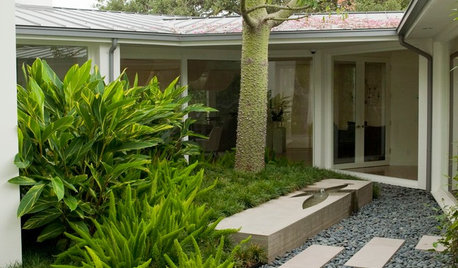
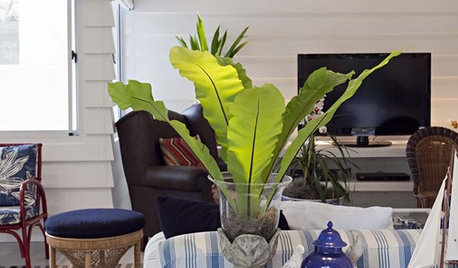
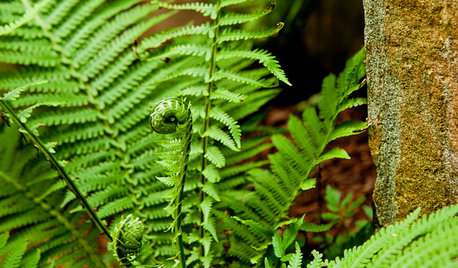
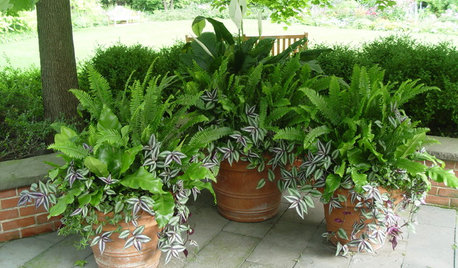

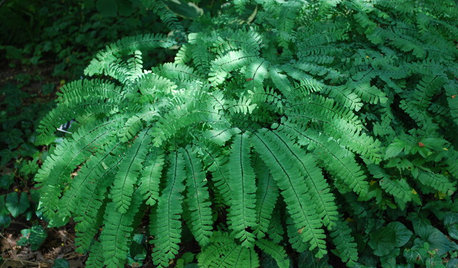
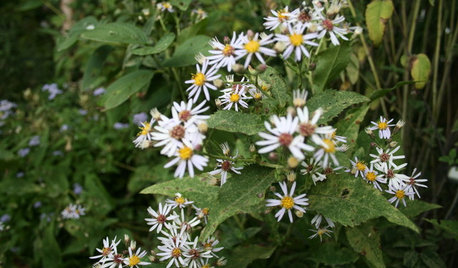
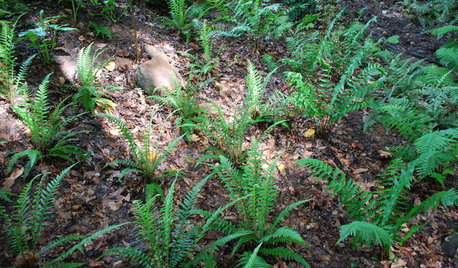
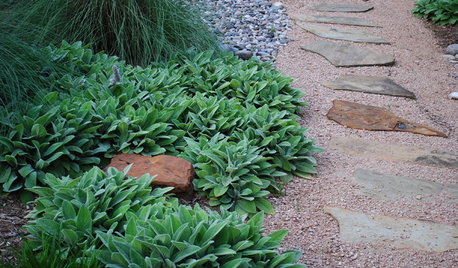
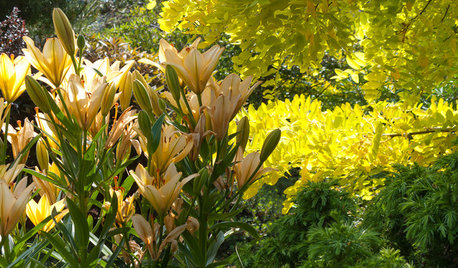







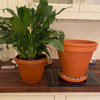

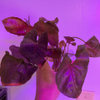
jojosplants